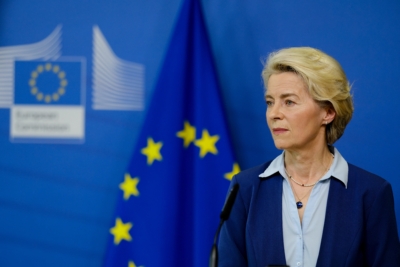Transparency International EU welcomes the outcome of a European Ombudsman inquiry, which has found that European Banking Authority (EBA) should not have allowed its former Executive Director, Adam Farkas, to become the head of a large financial lobbying organisation. This decision has again highlighted weaknesses in the EBA’s ability to enforce the rules that should govern it.
Revolving door regulations exist for a reason. They aim to curb potential conflicts of interest that could arise when EU civil servants take up jobs in the private sector.
When an EU civil servant changes jobs, the EU Staff Regulation gives the appointing authority (in this case, the EBA Board of Supervisors) the right to impose restrictions on the new professional ventures of former staff, and by default restricts senior officials from lobbying former colleagues for the first 12 months. This regulation also gives EU bodies the right to prohibit a new employment all together.
It seems hard to believe that a new managing director of the Association for Financial Markets in Europe (AFME), the large financial lobby group Adam Farkas moved to, would be able to perform his duties without lobbying the EU, either directly or indirectly.
The EBA flouted its own responsibility in following EU rules by imposing difficult-to-enforce restrictions, such as asking Mr Farkas to “refrain” from advising AFME on any topics regarding his work at the EBA, and giving primary responsibility for ensuring the restrictions are applied to the former executive director himself.
Mr Farkas’ move clearly constitutes a conflict of interest, and it should have been prohibited under the EU Staff Regulation. The Ombudsman has called on the EBA to ensure that in the future, this prohibition is invoked when necessary. Ms O’Reilly has also asked the EBA to set up criteria for when it should be used.
Revolving doors aside, this is not the first time that the EBA has recently come under the spotlight for bad governance. Its board also covered up possible breaches of EU law by member states in connection with money laundering activities linked to the Estonian branch of Danske Bank. Transparency International remains very concerned that the EBA could still be granted supervisory powers as part of the EU’s new anti-money laundering action plan.





